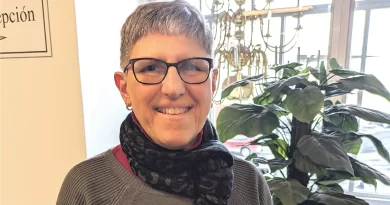Dispelling Medicaid Myths
Gifts of All Sizes Trigger Five-year Waiting Period
By Hyman G. Darling, Esq.
It seems like every day a client tells me they are going to protect their assets from long-term care expenses by making a gift of $10,000 to their children. If this writer got paid every time a client misspoke about this rule, he quite possibly could be retired.
First of all, the amount a person can gift to a child or another person on an annual basis is $17,000 per year without having to file a gift tax return. ($18,000 in 2024). Any amount over this annual amount will require a gift-tax return to be filed, but at the current time, the exclusion of the gifts is $12.92 million ($13.61 million in 2024). Therefore, most people should not be concerned about limiting a gift to $18,000.

“If the person has an interest is protecting assets from long-term care expenses, they can make gifts five years prior to needing care, give a child a remainder interest in a house, create an irrevocable trust (also a five-year lookback), or purchase a long-term care policy or hybrid policy.”
Again, this is only a tax rule, not a Medicaid rule. Any amount that is given to a person triggers a five-year waiting period, which means basically that the amount of the gift, whether it is $5 or $500,000, carries with it a five-year look-back. The donor will not be qualified for Medicaid benefits until either the five years is lapsed or all of the funds transferred are utilized for the benefit of the donor. There is no threshold for a de minimis amount that may be given without triggering the look-back. Some states even question and disqualify Christmas, anniversary, and birthday gifts.
Here is a relatively short list of permissible expenditures that do not normally disqualify a person for Medicaid eligibility, although these amounts may vary from state to state:
- $2,000 personal-needs account;
- Pre-paid burial account;
- $1,500 burial account earmarked specifically for funeral and related expenses;
- Purchase of any necessary medical equipment;
- Payment of expenses of a home while a person is living there;
- A home while the person is living in it (with a limit on equity in some states);
- Personal belongings and household goods; or
- One car.
All other assets, including jointly owned bank accounts, CDs, retirement plans, revocable trusts, second cars, second residences, value of life insurance, U.S. savings bonds, etc., are countable and will have to be spent on a person’s long-term care. Unless a person (usually a child) can prove that they contributed to the parent’s accounts, these assets are not protected as the account will be deemed to be owned 100% by the parent, and thus counted as long-term care assets.
Of course, there are many exceptions to the rules, such as having a minor child, a disabled child, or a child who is blind.
If the person has an interest is protecting assets from long-term care expenses, they can make gifts five years prior to needing care, give a child a remainder interest in a house, create an irrevocable trust (also a five-year lookback), or purchase a long-term care policy or hybrid policy. If a person is not interested in these options, then the decision is to take their chances and hope they are never institutionalized.
While this article is repetitive of prior articles, hopefully the annual exclusion rule for taxes will be understood by more people so that the misinformation will not continue to be spread. There is no substitute for good legal advice from a qualified elder-law attorney when considering any Medicaid or tax-planning strategy or transfer.
Hyman Darling, a shareholder at Bacon Wilson and chair of the firm’s estate-planning and elder-law department, is recognized as the area’s preeminent estate planner, with extensive experience with all aspects of estate planning, trusts, tax law, probate and estates, guardianships, special-needs trusts and planning, elder law, and long-term care planning, and additional specialties including adoption and real estate; (413) 781-0560.




